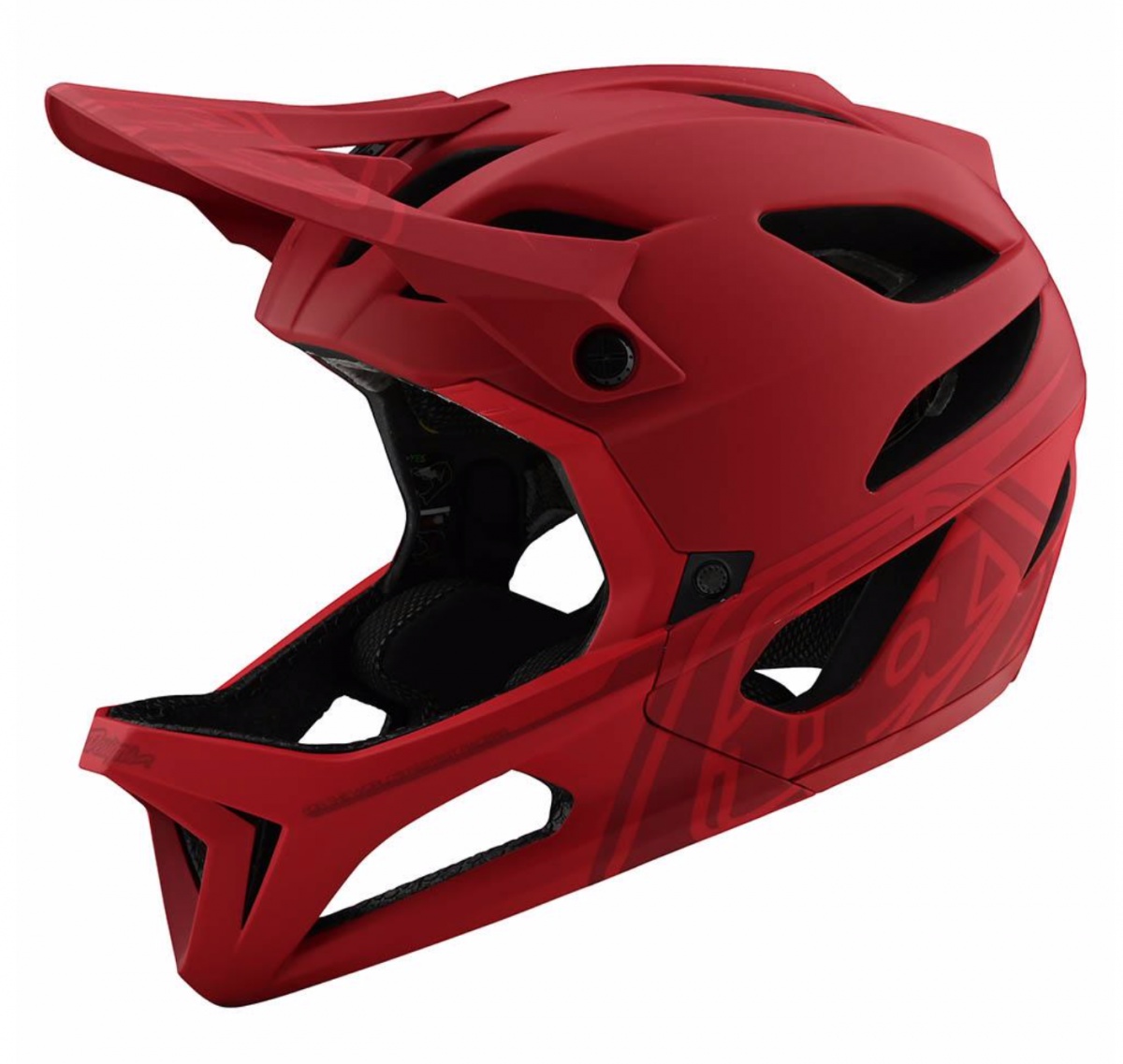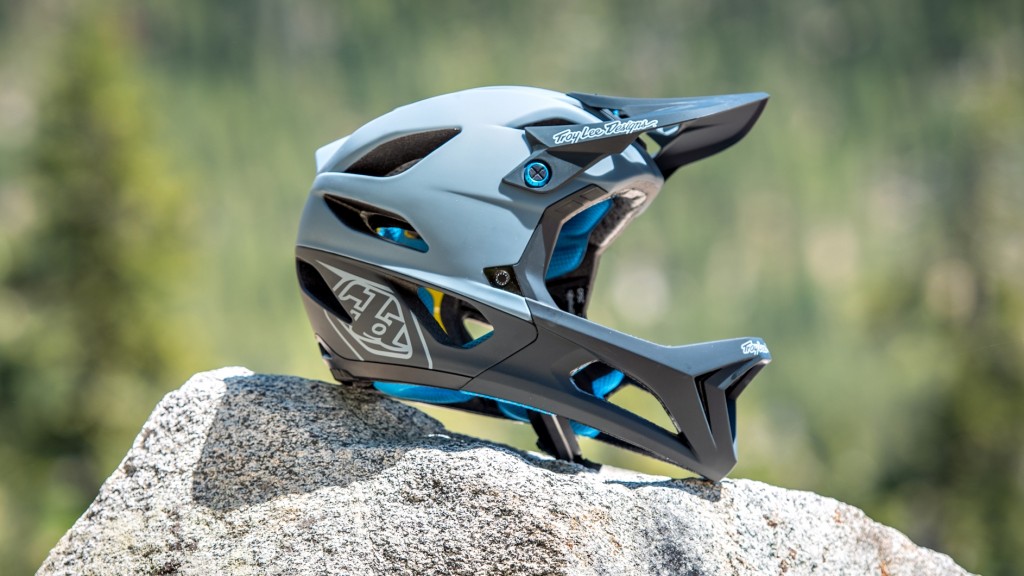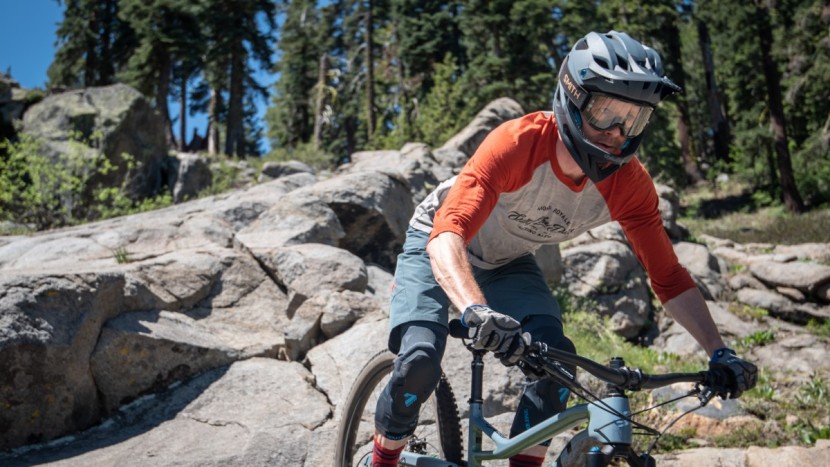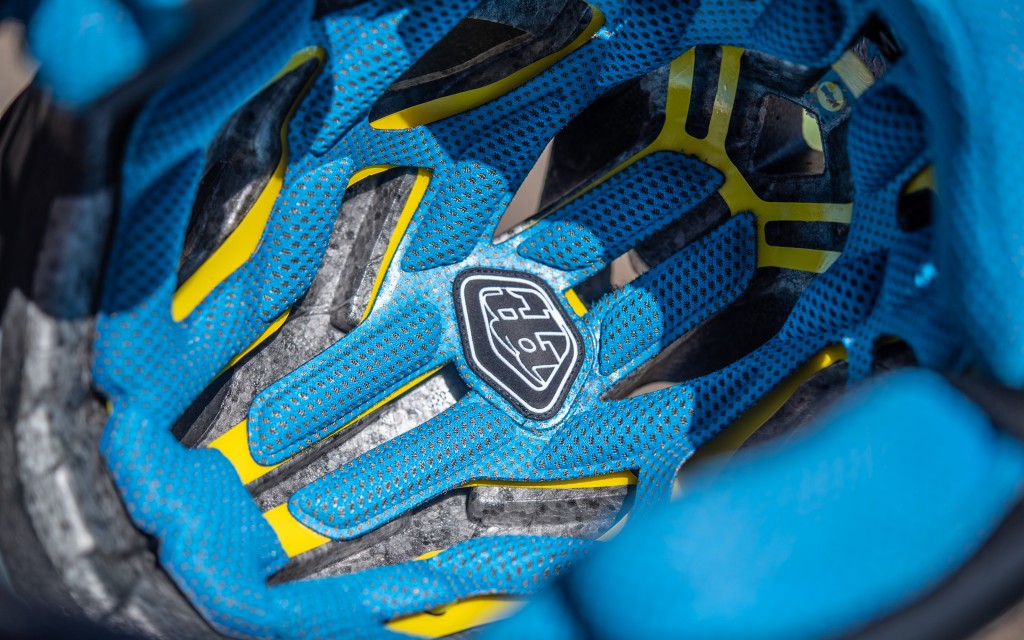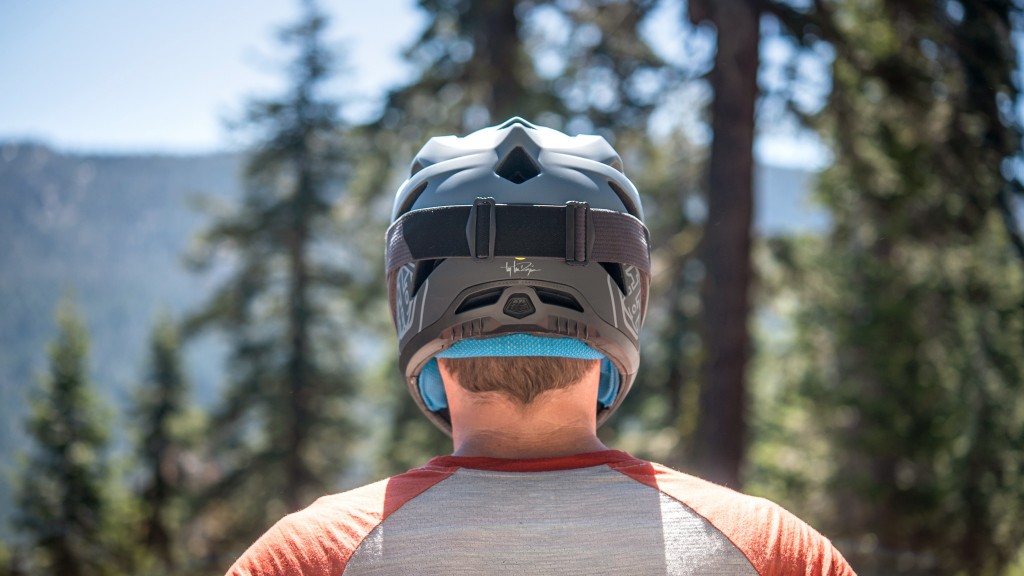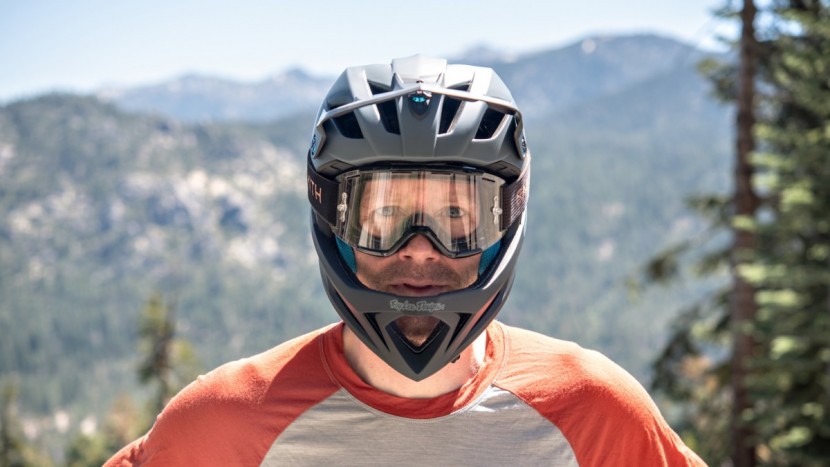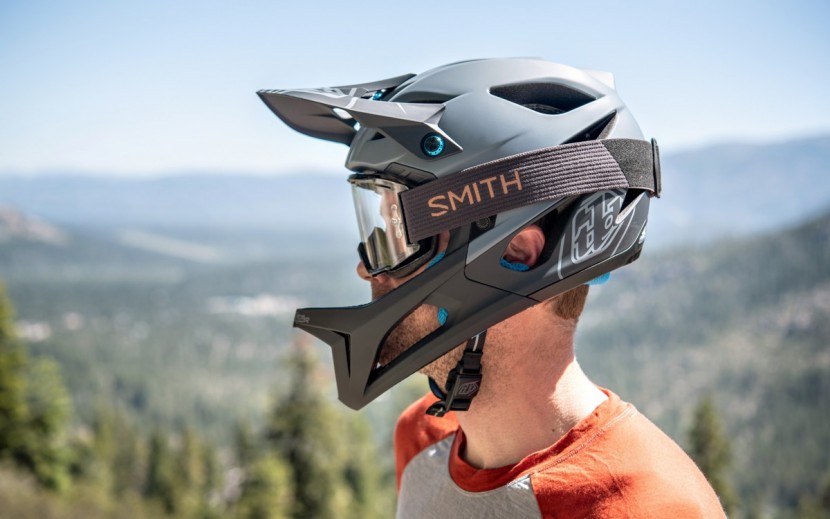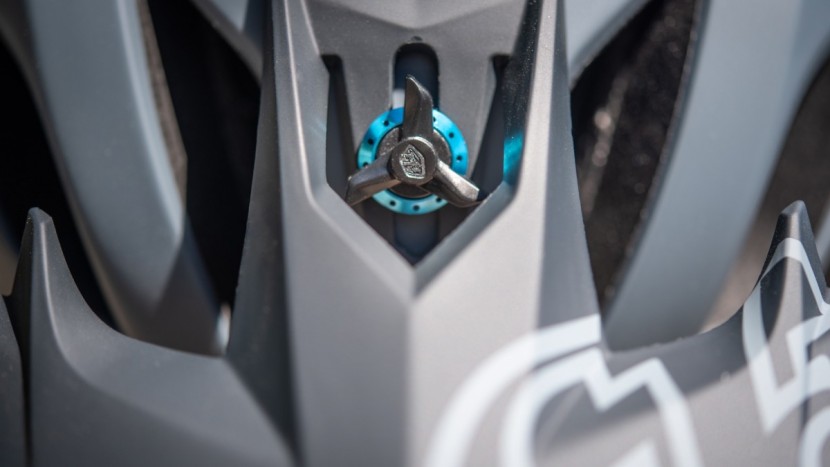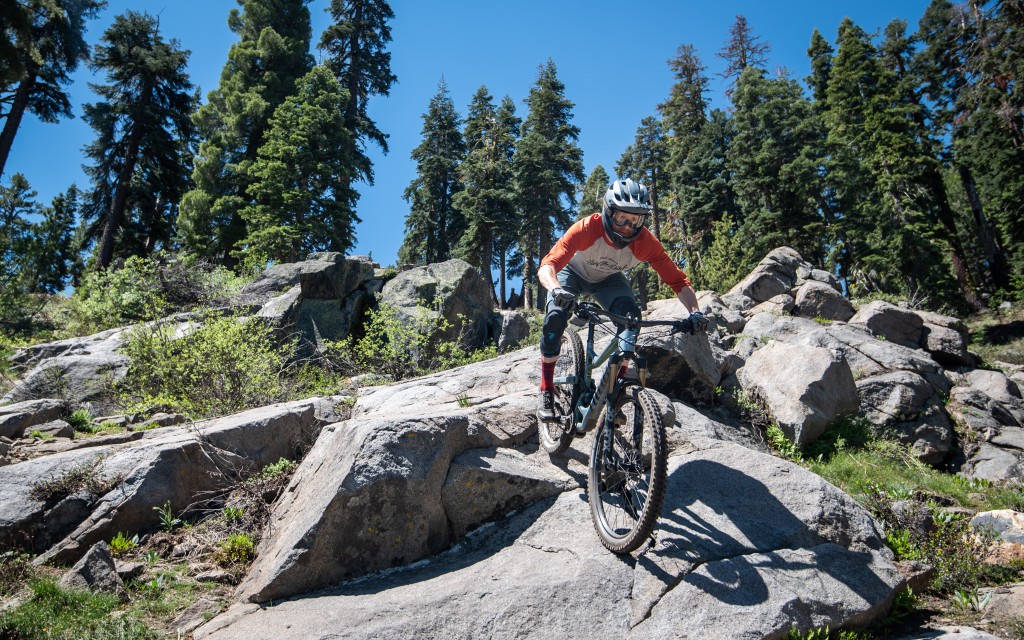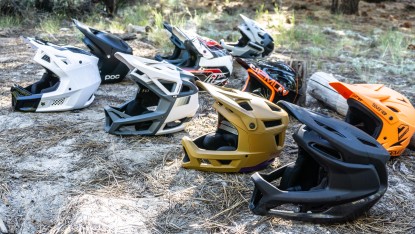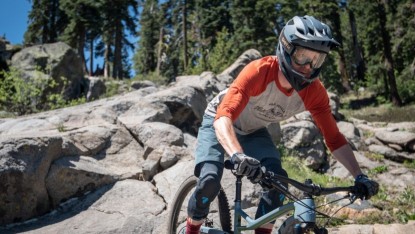Troy Lee Designs Stage Mips Review

Our Verdict
Our Analysis and Test Results
The Stage Mips helmet posted strong scores in categories like weight, ventilation, and comfort. Protection, a critical metric, was a little bit more up in the air, although this helmet does meet an exceptional amount of safety certifications. Regardless, this is a little bit of a niche helmet as its range of applications is a bit narrower than some other helmets in this review.
Comfort
The Stage Mips helmet delivers excellent comfort levels. Upon sliding your melon into this helmet, it feels immediately comfortable. It is snug and well-fitting where it should be, while also having room and space in the right places. The ear pockets are spacious, and your hearing is very much unobstructed. Everyone has a different shaped head, and some people may find the ear pockets to work better than others. One of our testers had a little pressure on the lobes.
The crown of the head is comfortable, and the interior of the helmet conforms well to the head. The relatively traditional pad layout is tried and true and has a pleasant feel against the head. In the rear, there is a patch of foam that slightly protrudes from the bottom of the shell. This feels nice, and if you look upward in a sharp manner, the helmet has an unobstructed range of motion.
One quirk is that the chin bar feels a little tight in on the face. The field of vision is excellent, and we can only assume that a compact chin bar that is closer to the face allows a more unobstructed view. Visibility is excellent with this helmet, but some people may have contact between the chin, or facial hair on the chin, and the inside of the chin bar. You get used to it, and it isn't a big deal per se. That said, something like this seems like a bit of a design flaw.
The Fox Proframe is a similar helmet in terms of comfort. Other enduro-focused options that we tested were the Bell Super DH, Giro Switchblade Mips and Leatt DBX 3.0. We feel the Stage Mips helmet is more comfortable than all of these lids.
Protection
The Stage Mips has multiple safety certifications. CPSC 1203, CE EN1078, ATSM F1952, ATSM F2032, and AS/NZS 2063-2008. This helmet does meet downhill standards.
This helmet has a Mips feature. If you look inside the helmet, it is the yellow layer of material underneath the padding but on top of the foam shell. This layer is intended to shift a bit in the event of an angled/off-axis impact. When the liner shifts, it supposedly reduces the rotational forces that reach your brain.
The EPP Lining on the chin bar is designed to take multiple impacts without failing. The rest of the helmet is constructed of EPS foam in a Polylite shell.
When you are wearing this helmet, you feel like you are wearing an enduro helmet rather than a downhill helmet. Yes, the Stage Mips carries a downhill certification. Again, this helmet is certified for downhill use. That said, the lightweight construction, enormous ventilation ports, and sleek fit detract somewhat from confidence. The chin bar is narrow and quite thin. This isn't the helmet we would reach for to go ride laps at a bike park for several hours. We would probably reach for a bigger, burlier lid. While Troy Lee Designs is undoubtedly proud of the downhill certification, we suspect they would be the first to recommend the more robust Troy Lee Designs D3 for bike park days.
In terms of our lighter, enduro-oriented convertible, and non-convertible helmets, the Stage Mips slots somewhere in the middle in terms of protection.
Weight
This is an extremely feathery light helmet. This lid comes in at 24.3-ounces. While a lightweight helmet may create concerns about safety, it sure feels nice when riding. Some of the more substantial options start to wear on you a bit over a couple of hours. It isn't as if you will collapse from exhaustion from wearing a 40-ounce helmet, but it's certainly noticeable. Quick head movements are crisp and instant.
Ventilation
If there is one area that the Stage Mips really shines, it is the copious amounts of ventilation.
The first area of tremendous airflow is in the chin bar. There are five open cutouts in the chin bar. This includes one central ventilation cutout that is located front and center and two long, wide, cutouts on the chin bar heading towards the cheeks. There are also two smaller vents situated in between the central cutout and the ones on the side of the bar. When we say open cutouts, we mean wide-open. There is no mesh, or screen-like materials blocking bugs and dirt; they are completely open. As a result, there is superb ventilation when you are gassing the pedals.
Sizeable ventilation ports are also located at the ears on each side of the helmet. The airflow aspect of these ports is important, but perhaps more important is how well you can hear while wearing this lid. Many full-face helmets block the ears with a bunch of foam and a burly shell. The Stage Mips is a great choice when you're listening for bears or trying to communicate with your friends.
There are plenty more ventilation ports scattered over the top and back of the helmet. There are air intake ports above the brow to catch air and help clear the heat out of the helmet by forcing it through the rear ventilation ports. We think these work fine, but they don't stand out as quite as impressive as the chin bar cutouts.
Visor
The Stage Mips helmet has a sizable, broad, visor. There are about 2.5-3-inches of adjustment. You can pull the visor down pretty darn low. Lower than one should ever need to. You can also move the visor pretty far up. It moves far enough that you can barely see it when the helmet is on.
The visor is adjustable with a single dial to loosen it. The dial is on the small side of the spectrum but has three short, half-inch, extension pieces. These little extension pieces protrude from the main dial making it easier to grab. It is quite easy to loosen and tighten the dial while the helmet is on your head.
The visor has significant amounts of bend to it. We didn't want to squeeze it too hard to test its limitations. It feels as though it would withstand some indirect impacts fairly effectively without snapping.
Durability
Throughout testing, we observed no signs of developing durability issues. We sweat into this helmet quite a bit and observed no premature paint fade or failure. This helmet comes with a three-year warranty.
The FidLock chinstrap buckle system continues to work flawlessly, and all of the inners of the helmet are still affixed in the correct spots with no pads peeling out or stitching coming undone.
Extras
The Stage Mips comes with some very notable and practical extras in the box.
It comes with the standard helmet bag, which is par for the course. What stands out is that extra padding included in the box is offered in different sizes. This helps the user fine-tune the fit a little by adding slimmer or bulkier pads. This is a nice touch. Three different size jaw (cheek) pads are included. Two different sized head liners (top of head)) and two different sized neck rolls are all included.
Value
The Stage Mips is definitely a little spendy. This is not a great value as an only helmet as we don't recommend it for charging bike park laps. Still, it can be a strong value for the rider seeking an enduro race helmet. We feel this lid is the best of the best in that application.
Conclusion
Troy Lee Designs delivered another impressive full-face helmet with the Stage Mips. This enduro-oriented helmet delivers unbelievable ventilation and breathability at a stunning low weight while maintaining a downhill certification. This helmet has certain situations, like enduro racing, where it clearly excels, although we think it is a bit under-gunned for heavy-hitting sends and downhill race courses.


